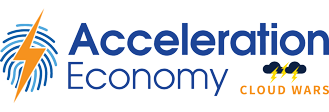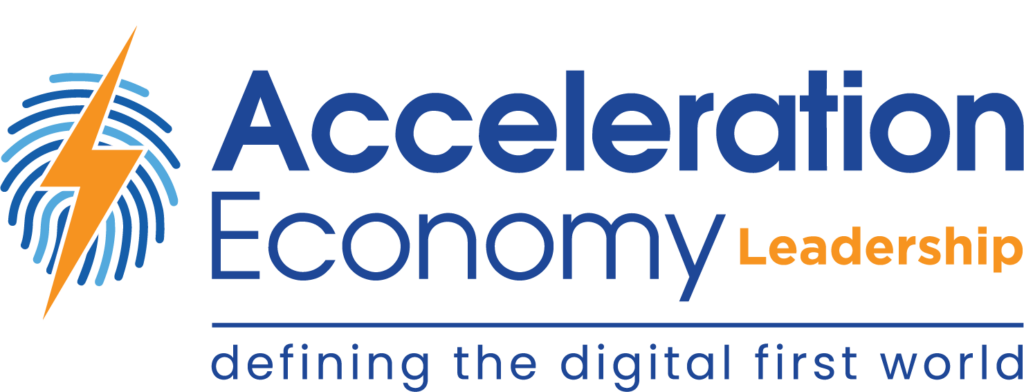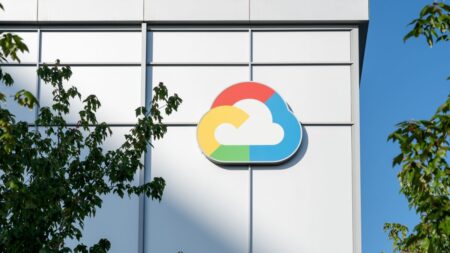In episode 31 of the Growth Swarm podcast, John Siefert, Bob Evans, Tony Uphoff, and Scott Vaughan discuss what’s next after a slew of layoffs hit the market. The hosts take a unique approach in analyzing these layoffs and stray from the standard coverage that focuses on why they occurred. While they are unfortunate, staff reductions demonstrate an opportunity for growth and innovation. It allows companies to reshift their priorities to focus on technologies that matter, like artificial intelligence (AI), which is considered the next major computing model. More importantly, these layoffs represent the industry’s attempt to follow customers in the direction of the future, reflecting a redefinition of knowledge work and the use of emerging technology.
Highlights
00:35 — The fear, uncertainty, and doubt caused by layoffs taking place across the tech industry are present everywhere. In this episode, the Growth Swarm hosts will not be analyzing why these layoffs are happening — that has already been done by many pundits already. Instead, the hosts will focus on what’s next, what this means for organizations, and how they can adapt to a new reality — a reality that is focused on artificial intelligence (AI) and the redefinition of what a knowledge worker is.
01:16 — Satya Nadella, the CEO of Microsoft, talked through what is next for the company after it announced it would let go of 10,000 employees. Bob recently published an analysis that reviewed these comments. John asks him to expand on Nadella’s response.
01:34 — Bob notes that Nadella has a remarkable gift as a communicator and is able to effectively get to the point and relay information in a way that is easy for the public to grasp. In his communications about the layoffs, Nadella got to the point — something that company investors, customers, partners, and employees deserve to see.
02:12 — Nadella explained that Microsoft has to constantly restructure its costs to align with new demands and opportunities for customers. He was blunt about AI as the next big computing platform and explained that Microsoft needs to be ready for that, says Bob. Nadella suggests that tech is an industry that is not terribly forgiving to companies that do not onboard new and emerging technologies, adding that Microsoft will not miss that. Nadella’s final point was that if companies — Microsoft included — allow customers to guide them into the future and drive internal innovation to match where customers are headed, the world will emerge from waves of layoffs and economic uncertainty stronger than ever.
03:42 — John adds that Nadella’s comments on being “stronger than ever” remind him of Snowflake CEO Frank Slootman’s comments regarding priorities. To be able to focus on priorities, having a single mission for the company, is risky and can be challenging, especially if the priority is the wrong one.
04:33 — Google recently announced some drastic layoffs — cutting about 12,000 jobs worldwide. Alphabet, the parent company of the entire Google enterprise, said it was citing the need for these tough choices as a way to fully capture the huge opportunities that lie ahead. John thinks this is a focus on what the future holds, despite needing to make tough decisions in the process. He asks Tony to give context around this.
05:04 — Tony notes that there are two fascinating things happening concurrently:
- Companies are dealing with the demand distortion event of the pandemic
- We are witnessing the transformation of the next major computing platform
Many of these companies dealing with the current rounds of layoffs — either through acquisition or huge spikes in business — had overhired. Companies are now having to deal with that. Companies that have announced layoffs — including Microsoft, Google, and Salesforce — are trying to prepare for what the future will look like.
06:26 — The transition to hybrid and remote work was the beginning of a series of disruptions and radical changes to knowledge work around the world, suggests Tony. The secondary change that the world is witnessing now is the automation of knowledge work. Without making light of these layoffs, Tony thinks they signify a remarkable time for opportunity and innovation within the tech industry.
07:28 — Following up on Tony’s comments, John references how new technologies like the iPhone, ChatGPT, and AI, have democratized platforms to the point where everyone could use them. Additionally, he suggests that the redefinition of knowledge work is shifting to capture the reality that individuals need to have something enabling them to make a difference every single day. Much of today’s work can be automated through machine learning (ML) platforms, which must be accepted and understood as the truth. The world must also start to redefine human intelligence.
09:30 — Scott suggests that it is accurate to acknowledge that the foundation of the tech industry is changing. In today’s world, the next level of upscaling will become a requirement to “do something with the data” and take the “interpretations of AI.” Scott notes that an intellectual capitalist is someone who can take the best of these new tools and technologies and create opportunities from them. He adds that AI will enable a whole new set of skills and jobs; when things get tough, it means there is opportunity.
12:02 — The world cannot just be hopeful. We must be fearless about how we’re making a difference and creating human intelligence that is relevant in an artificially intelligent world, notes John. The layoffs that have occurred are not limited to the tech industry. John adds that those who have been impacted should reach out to Acceleration Economy on LinkedIn and let the team know how it can help.
13:18 — The restructuring of a company needs to be aligned with discipline and market opportunity. Making the wrong decisions will not enable success in the acceleration economy.
14:35 — Bob reflects on 2022, looking back at the year and noting that we “have heard a lot of these things.” Oracle had to make some drastic layoffs, while at the same time, its business was growing faster than any other major cloud provider in the world. Bob thinks it is fundamental to reorder and restructure a business to become fully aligned with future directions. These events must be viewed in the context of the long-term perspective; companies are acting in the best interests of themselves and shareholders, to prepare themselves for the new wave of highly disruptive change.
17:52 — Tony offers his final thoughts. It takes great leadership and understanding for business leaders to be able to pivot a company. In general, there are valuable lessons to be taken from what these companies are attempting to steer through in this case.
19:14 — Everyone has access to new and emerging technologies. The importance of these technologies relies on how they are applied to make a notable difference in the world. Scott says that business leaders must find ways to lead with these new technologies. Additionally, companies will need to rethink their hiring processes to onboard more intellectual capitalists.
21:02 — John wraps up the episode by noting that “the individual is the one who can make a difference every single day” to enable the rise of intellectual capitalism. The fact that Acceleration Economy analysts are direct practitioners in their fields is what enables the organization to make a difference in the content being delivered. For those who have been impacted by record layoffs, Acceleration Economy is happy to do whatever it can for you.
Want more tech insights for the top execs? Visit the Leadership channel:








